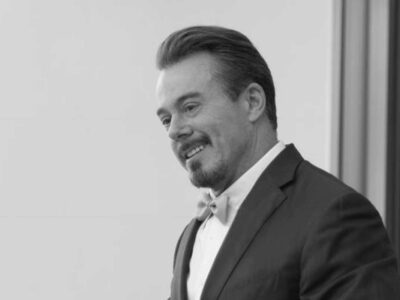There has been so much written on leadership in the past 20+ years, you could spend weeks running around in circles reading books, trialing things and trying to work out what is the best leadership model for you and your organization. Leadership science is defining that if you can understand the way the brain works, and the way humans behave and interact with each other, then you can start to take an intelligent, scientific and informed approach to how people will react to you and your leadership style.
Ever since Daniel Goldman’s research and work around Emotional Intelligence (EQ), self-reflection and becoming a transparent, authentic and empathetic leader has been proven to engage, inspire, empower and ignite teams and yield better business results. If this is the magic potion, then why have so few leaders managed, or even attempted, to drink the ‘cool aid’ and be the leaders we so want them to be.
One of the reasons that leaders don’t change and evolve is not because they are unaware of or do not understand behavioural economics. From our work coaching CEO’s and leading executives, as well as the numerous studies by the World Economic Forum, Harvard, and McKinsey, we have seen that what happens at a macrobiotics and chemical level within our brains and bodies has a profound and major influence over what and how we feel, think and act and ultimately our ability to make and control our decisions. This holistic meta-physical health arena controls and determines your ability to feel, think and behave, which in turn impacts those around you and your business.
Simply put, if you cannot control yourself, what hope do you have of controlling others?
A lot of this comes down to behavioural economics, which is the study of psychology as it relates to the economic decision-making processes of individuals and institutions. With the help of neuroscience, we can now see how this shows up in the brain in terms of human behaviour, leadership and followship.
This consistent failure to adopt a certain behaviour, despite an avowed understanding of the importance of a particular outcome, stems from the automatic, heuristic-based decision-making that protects people from investing too much cognitive energy in routine choices. People tend to reserve conscious reasoning capacity for more complex decisions. Change is hard because we are hard-wired not to change or adapt.
Present bias: When humans want something, they want it now
People value future earnings, future happiness and future health much less than any rational discounting model would suggest. Hence habits are hard to break unless there is an immediate, psychological reward in the brain.
Loss aversion: People experience loss more deeply than gain
This suggests that “sticks” are more likely to motivate individuals than economically equivalent “carrots”.
Framing: Context matters
The same car looks expensive in a showroom of economy cars but seems like a bargain in a line-up of luxury cars.
Availability narrative
People respond to what is most immediate and familiar to their everyday experiences.
Optimism: Humans are an irrationally optimistic species
This trait served us well in prehistory when people often existed at the edge of survival and needed hope to venture out into a dangerous world to find the next meal. Optimism serves a purpose today as people compete for jobs, love and success.
Depletion: People have limited attention
The perception of constrained time and numerous demands reduces the likelihood that people will make the effort to improve their health. Even self-control might be a limited resource.
So how can you use this to inform and influence your leadership style? As with all learning, the first step is awareness, and now you are aware of something that you may not have been several minutes ago. That in turn sparks curiosity to learn and grow, but there needs to be a willingness and reason to change.With all of this knowledge and energy, you would think it should be easy, but the killer issue here is our habits. Habits stop us from doing what we “should do” because it is easier for the brain to take the path of least resistance. If you want to be a leader, you need to get out of your comfort zone, take control of your mind and body, which will lead to healthy and clean decision making. As the proverb goes, you can take a horse to water, but you cannot make him drink.
Matthew Lewis is a Dubai based executive search expert, and a partner with premier leadership and talent advisory firm, Boyden. He is a certified CEO and leadership coach conducting his PhD research in the field of applied neuroscience and its impact on leadership performance and a writer and commentator on regional talent, leadership and culture.









